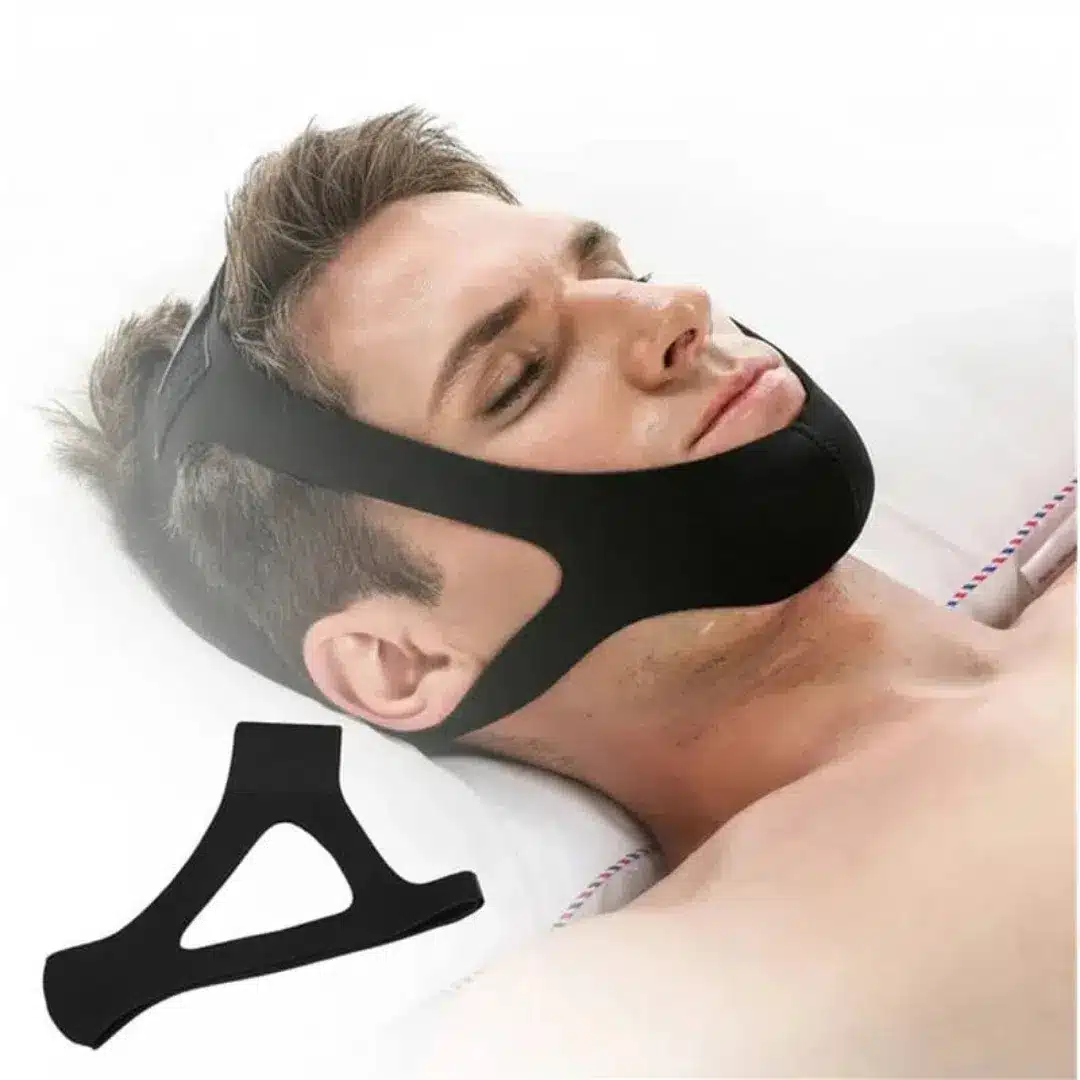As a board-certified sleep physician, I have dedicated my career to helping people overcome the challenges of snoring and sleep-disordered breathing.
Every week, I meet patients who are searching for a non-invasive, comfortable, and effective solution to their nightly struggles.
Today, I’d like to share my personal and professional experience with the AirFlow Jaw Strap—a device that has truly impressed me with its thoughtful design and the positive results I’ve seen in both my patients and myself.
Table of Contents
My First Impressions
When I first heard about the AirFlow Jaw Strap, I was skeptical. The market is saturated with anti-snoring devices, many of which overpromise and underdeliver. However, the AirFlow Jaw Strap quickly stood out with its quality materials, adjustability, and focus on user comfort. When I opened the package, I immediately noticed the strap’s soft, hypoallergenic fabric—breathable and gentle on the skin, which is crucial for anyone wearing it for several hours each night.
The instructions were clear and straightforward, making setup easy. The adjustable Velcro allowed for a snug yet comfortable fit, and I appreciated the attention to detail in the stitching and overall construction. As a sleep doctor, I always look for products that balance effectiveness with comfort, and the AirFlow Jaw Strap made a strong first impression in both areas.

How the AirFlow Jaw Strap Works
The principle behind the AirFlow Jaw Strap is elegantly simple. By gently supporting the jaw and keeping the mouth closed during sleep, the device encourages nasal breathing and prevents the jaw from dropping backward—a common cause of snoring and airway obstruction. This is especially helpful for people who snore due to mouth breathing or have mild obstructive sleep apnea.
Key Features
-
Adjustable Fit: The strap accommodates different head sizes and shapes, ensuring a personalized fit.
-
Soft, Breathable Fabric: Hypoallergenic and washable, the material remains comfortable even after prolonged use.
-
Compatibility with CPAP: For patients using CPAP therapy, the strap can help reduce air leaks and dry mouth by keeping the mouth closed.
-
Non-Invasive: Unlike oral appliances or surgical interventions, the AirFlow Jaw Strap is non-invasive and easy to use.
-
Travel-Friendly: Lightweight and compact, it’s easy to pack for trips.
My Clinical Experience
Over the past several months, I have recommended the AirFlow Jaw Strap to a select group of patients—primarily those who snore due to mouth breathing or struggle with minor CPAP mask leaks. The feedback has been overwhelmingly positive. Many reported a noticeable reduction in snoring intensity and frequency. Partners often commented on quieter nights and improved sleep quality for both parties.
I decided to test the strap myself to better understand the user experience. I wore it consistently for two weeks, paying close attention to comfort, ease of use, and the impact on my own sleep quality. The results were impressive:
-
Comfort: The strap was barely noticeable after a few minutes. There was no chafing or overheating, even on warmer nights.
-
Effectiveness: My snoring, as tracked by a sleep monitoring app and confirmed by my spouse, decreased significantly.
-
Sleep Quality: I woke up feeling more refreshed, with fewer instances of dry mouth or throat irritation.
Patient Success Stories
One of my patients, a 45-year-old man with mild obstructive sleep apnea, had struggled with traditional CPAP masks due to persistent mouth leaks. After incorporating the AirFlow Jaw Strap into his nightly routine, he reported a dramatic reduction in air leaks and improved adherence to CPAP therapy. Another patient, a young woman plagued by chronic snoring, found that the strap allowed her to sleep more soundly and confidently, especially when sharing accommodations with others.
These are just a couple of examples, but I’ve seen similar results in many patients. While not a cure-all, the AirFlow Jaw Strap offers a practical and accessible solution for many.
The Science Behind Chin Straps
As a sleep doctor, I am always guided by evidence and clinical experience. Chin straps can help reduce snoring by promoting nasal breathing and preventing mouth opening during sleep. For individuals with mild sleep apnea or those who primarily snore due to mouth breathing, this simple intervention can make a significant difference. However, it’s important to note that chin straps are not a substitute for medical evaluation or treatment in cases of moderate to severe sleep apnea.
The AirFlow Jaw Strap stands out due to its thoughtful design and user-centric features. Unlike generic chin straps, it combines comfort, adjustability, and durability—qualities that are essential for long-term compliance and effectiveness.
Addressing Common Concerns
Is It Comfortable?
Absolutely. Comfort is paramount for any sleep aid, and the AirFlow Jaw Strap excels in this regard. The fabric is soft, the fit is customizable, and the design avoids excessive pressure on sensitive areas.
Does It Really Work?
For many people, yes. While individual results may vary, most users experience a reduction in snoring and improved sleep quality. It is particularly effective for those who snore due to mouth breathing or experience mouth leaks with CPAP therapy.
Is It Safe?
The AirFlow Jaw Strap is non-invasive and made from hypoallergenic materials. However, it’s important to consult a healthcare professional if you have underlying sleep disorders or experience persistent symptoms.
Practical Tips for Use
-
Start Slowly: Wear the strap for short periods before bed to get used to the sensation.
-
Adjust for Comfort: Take time to find the right fit—too tight can cause discomfort, too loose may reduce effectiveness.
-
Maintain Hygiene: Wash the strap regularly to prevent skin irritation.
-
Combine with Other Therapies: For those with diagnosed sleep apnea, use the strap alongside CPAP or other prescribed treatments.
My Final Verdict
The AirFlow Jaw Strap has earned a place in my toolkit as a sleep physician. It is a well-designed, effective, and affordable solution for many individuals struggling with snoring and mild sleep-disordered breathing. While it is not a panacea, it offers real benefits for those who use it properly and consistently. The overwhelmingly positive feedback from my patients—and my own experience—underscore its value.

Dr. John Williams is a sleep specialist. He offers Sleep Telemedicine to help people deal with various sleep disorders, particularly sleep apnea.
Graduating from the University of Zagreb’s School of Medicine, he investigates the cellular mechanisms of vascular endothelial dysfunction in obstructive sleep apnea. He also addresses cardiovascular complications of sleep deprivation and COPD. So if you have any sleep problems, let Dr. John Williams help you out.